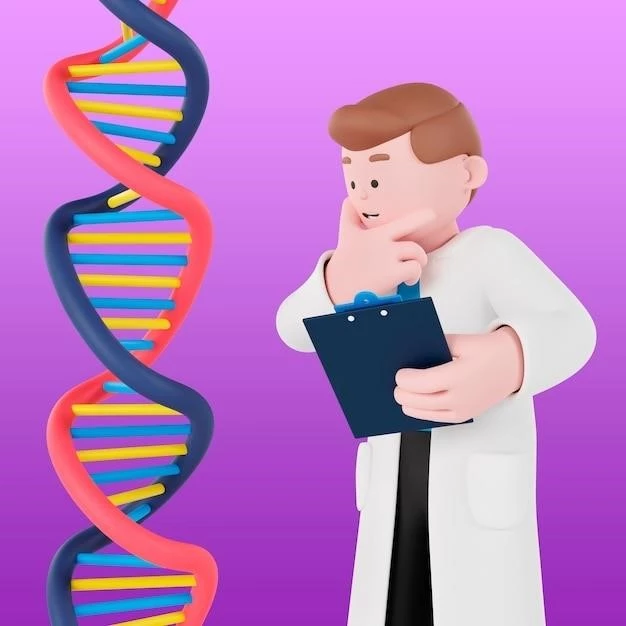Symptoms of Bardet-Biedl Syndrome
Learn to recognize both physical and cognitive symptoms early for prompt medical attention.
Recognizing the Physical Symptoms
Be vigilant for obesity, vision problems, extra fingers or toes, kidney abnormalities, and genital abnormalities in individuals with Bardet-Biedl syndrome. Regular medical check-ups are crucial for early detection and management.
Identifying Developmental and Cognitive Symptoms
Pay attention to intellectual disability, speech delays, learning difficulties, and behavioral challenges in individuals with Bardet-Biedl syndrome. Early intervention and support services can improve overall quality of life and outcomes.
Genetics of Bardet-Biedl Syndrome
Understanding the inheritance pattern and genetic testing is crucial for accurate diagnosis and management.
Understanding the Inheritance Pattern
Recognize that Bardet-Biedl syndrome is typically inherited in an autosomal recessive manner, meaning both parents must carry a mutated gene. Genetic counseling can provide insight into familial risks and options for family planning.
Genetic Testing and Counseling
Consider genetic testing to confirm Bardet-Biedl syndrome diagnosis and understand associated risks. Genetic counseling can provide valuable information on the condition, inheritance, and help in making informed decisions regarding family planning and management.
Treatment Options for Bardet-Biedl Syndrome
Adopting a multidisciplinary approach for comprehensive care is essential in managing this condition.
Multidisciplinary Approach to Care
Coordinate with various specialists like geneticists, ophthalmologists, endocrinologists, and psychologists to address the diverse needs of individuals with Bardet-Biedl syndrome effectively. Collaboration ensures holistic management and improved outcomes.
Symptom Management Strategies
Develop personalized care plans to address obesity, visual impairments, renal issues, and other symptoms associated with Bardet-Biedl syndrome; Regular monitoring, lifestyle modifications, and adherence to treatment recommendations can help in managing the condition effectively.
Prognosis of Bardet-Biedl Syndrome
Understanding the long-term outlook is essential for planning and providing continued care.
Understanding Long-Term Outlook
Work closely with healthcare providers to comprehend the potential challenges and progression of Bardet-Biedl syndrome over time. Regular evaluations and adjustments to care plans can help in adapting to the evolving needs associated with the condition.
Monitoring and Follow-Up Care
Regular monitoring of symptoms and adherence to recommended follow-up appointments are crucial in managing Bardet-Biedl syndrome. Stay proactive in seeking medical guidance and updates to ensure optimal management and quality of life for individuals with this condition.
Lifestyle Modifications for Bardet-Biedl Syndrome
Implementing healthy habits is key to managing this condition and promoting overall well-being.
Importance of Healthy Habits
Encourage a balanced diet, regular exercise, adequate sleep, and stress management to support overall health and well-being in individuals with Bardet-Biedl syndrome. Establishing these habits can contribute to improved quality of life and symptom management.
Social and Emotional Support
Seek out support groups, counseling services, and community resources to address the emotional and social needs of individuals with Bardet-Biedl syndrome. Building a strong support network and fostering positive relationships can aid in coping with the challenges of the condition.

Bardet-Biedl Syndrome Research Updates
Stay informed about current studies and future research directions to explore new advancements in treatment.
Current Research Studies
Stay engaged with ongoing research endeavors focused on Bardet-Biedl syndrome to contribute to the development of innovative treatment options and potentially enhance the understanding of this complex condition. Remaining informed about the latest findings can offer hope and insights for the future.
Future Directions in Research
Support research initiatives aimed at exploring novel therapies, genetic mechanisms, and potential breakthroughs for Bardet-Biedl syndrome. By fostering advancements in understanding and treatment modalities, the future holds promise for improved outcomes and management strategies for individuals affected by this syndrome.
Bardet-Biedl Syndrome in Children
Early diagnosis and intervention are crucial for optimal care and support in pediatric cases.
Early Diagnosis and Intervention
Promptly identifying Bardet-Biedl syndrome in children allows for timely access to specialized care and tailored interventions. Early detection paves the way for effective management strategies to enhance the child’s well-being and development.
School and Education Considerations
Collaborate with educators to create customized learning plans and accommodations to support children with Bardet-Biedl syndrome in academic settings. Ensuring a supportive environment and implementing appropriate educational strategies can optimize the child’s educational journey and overall success.
Coping Strategies for Bardet-Biedl Syndrome
Focus on building support networks and prioritizing self-care for enhanced mental well-being.
Building a Support Network
Establish connections with patient advocacy groups, therapists, friends, and family to create a strong support system. Sharing experiences and seeking help can enhance coping mechanisms and provide a sense of community for individuals with Bardet-Biedl syndrome.
Self-Care and Mental Wellbeing
Practice self-care activities, such as mindfulness, hobbies, and relaxation techniques, to prioritize mental health amidst the challenges of Bardet-Biedl syndrome. Seeking professional support and engaging in positive coping strategies can bolster mental well-being and resilience.
